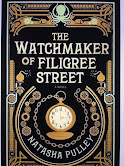Five Ways You Can Make Sure You Meet Your Deadlines by Theresa Gauthier
Every writer has had issues with deadlines. Whether they be self-imposed or written in stone from an employer, deadlines are an inevitable consequence of taking on any writing job. Keeping those deadlines becomes second nature, but if you’re new to it, or if you’ve always found a deadline to be challenging, deadlines are daunting. Here are some tips to help you meet each and every one like a pro.
1. Practice makes perfect. Give yourself some easy-to-meet deadlines to get into the habit. Write a page in a day. Write a paragraph in an hour. Whatever works. Allow yourself to celebrate meeting one, and be sure to include a consequence for missing one. These don’t have to be extreme. A celebration might be a candy bar or a half hour of free time to read that book you’ve put off starting. A consequence might be to slip a few dollars into a “missed deadline jar” or to deny yourself that candy bar. The idea is to make sure it’s not easy to let your deadlines slip past you unheeded.2. Make a plan. You need to write 2,000 words in a week. Divide it up. Don’t think about the entire task, but instead break up the work into small, manageable bits. In order to write 2,000 words in seven days, you’d have to write just under 286 words a day. Tell yourself to start there. Your first day, you are required to write 286 words. If you hit that goal, give yourself permission to keep writing. See just how far you’ll get in that first day. If you meet the deadline much quicker than expected, revise it. Make the second day’s deadline a much higher word count. If you find yourself on a roll, you could reach the 2,000 word limit in just a few days. Once you’ve gotten accustomed to reaching the deadlines, you’ll find it easier to estimate your average words per day. That way deadlines will never be a bother or a worry because you’ll know you can reach them.
3. Do your research. If you know you’ll need to do some research before you begin to write, get that out of the way first. Read up on the topic, visit the library, or conduct that interview. Once you have a thorough understanding of it, you’ll find the words flow much quicker than you’d expected.
4. Don’t overbook yourself. Know yourself and your limits. If you’ve already got a couple of big deadlines coming up, don’t accept more jobs that might infringe upon your abilities to make sure you’re meeting every deadline. It’s important to be aware of your needs as a creative person and not to demand too much of yourself.
5. Embrace your difficulties, but not your excuses. Even with the best planning, things can end up far different than we imagine. It’s not unheard of to make a deadline with only moments to spare or even to miss it. When life throws you a curve and you can’t quite finish your project on time, you’ll have to determine a number of things. How close were you to making it? Was it mere minutes, or weeks later when the draft was finished? If the latter, was there some unplanned catastrophe that kept you from meeting the deadline? You’ll have to decide if this deadline debacle is a once in a lifetime issue or if you’re going to need to revise your timing estimates in the future.
You can’t commit to a deadline if you think there’s more than a good chance you won’t make it. Presuming that the client or publisher will shrug it off and let you finish when you can is a sure way to earn a reputation for unreliability. This could destroy your reputation and end your writing career. If, on the other hand, you can anticipate such problems and increase the pace of work to avoid them you can consider the missed deadline as just another part of a learning curve and take on more and more projects.
With attention, hard work, and careful time management, you’ll see deadlines as the tool they should be and not as something to fear.







Comments
Post a Comment